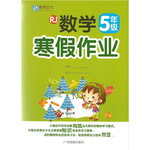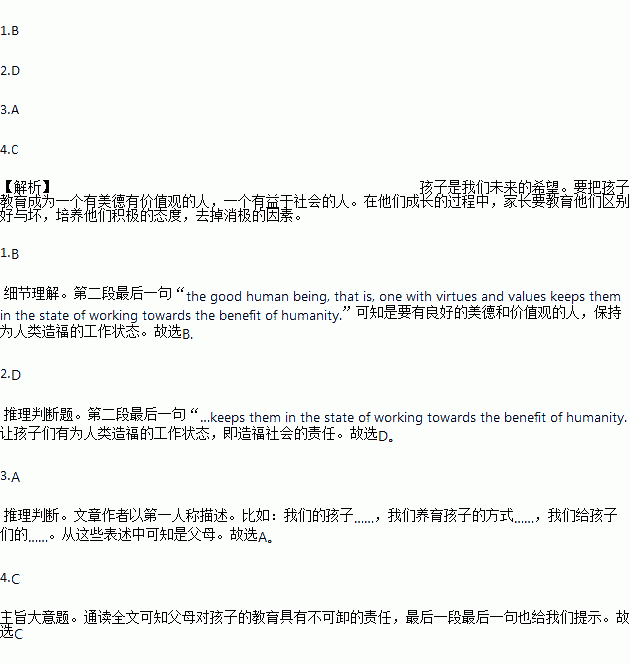题目内容
That children are the hopes of our tomorrow is statement that is repeated time and again. And it is an axiom(格言); they are our pillars of the coming time. But then do we train them into becoming healthy human beings?
Healthy human beings here are not meant the physical well being, but the good human being, that is, one with virtues and values keeps them in the state of working towards the benefit of humanity.
How can children absorb within themselves the virtues and values? Well, this is the primary responsibility of parents and other immediate family members, followed by school authorities. The values and virtues of an individual is sown in their childhood and as they grow up.
Depending on the way we bring up our children, we decide our own future. It is vital that in the formative years we give them quality time and attention. We teach them to discriminate between the good, bad and the ugly. We have to teach them use positive emotive like love and compassion and teach them actions of kindness and generosity. At the same time we have to help them do away with the negatives of hatred, anger, jealousy, selfishness, etc.
Your child is like a plant. You sow the seeds and also reap the benefits of its growth and development. First and foremost you as a parent have to realize your responsibility in nurturing a child to grow into a good human being. And it is just not up to anyone of the parents, but both together to inculcate(谆谆教诲)the values and virtues into your child.
1.What should a good human being have?
A. A good physical state B. A good virtue or value
C. A good career in society D. A powerful relationship net
2.What sense is the most important for kids to learn?
A. Safety sense B. Lifestyle sense
C. Transportation sense D. Responsibility sense
3.Whom is the passage most probably written for?
A. Family parents B. Child experts
C. Health researchers D. Primary school teachers
4.What does the passage mainly want to tell us?
A. Children are parents’ hope
B. Educating children is a tough thing
C. Parents take responsibilities for educating children
D. Parents have trouble in educating children
 黎明文化寒假作业系列答案
黎明文化寒假作业系列答案
